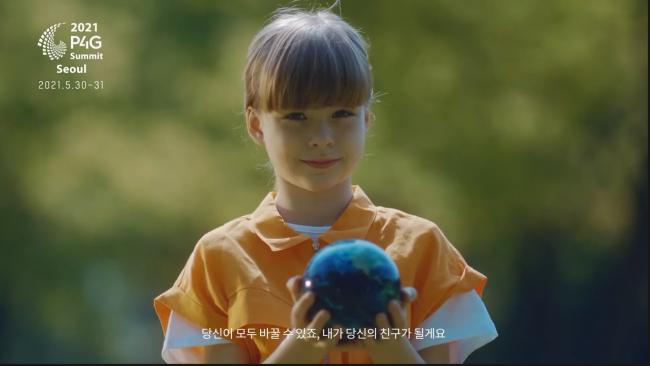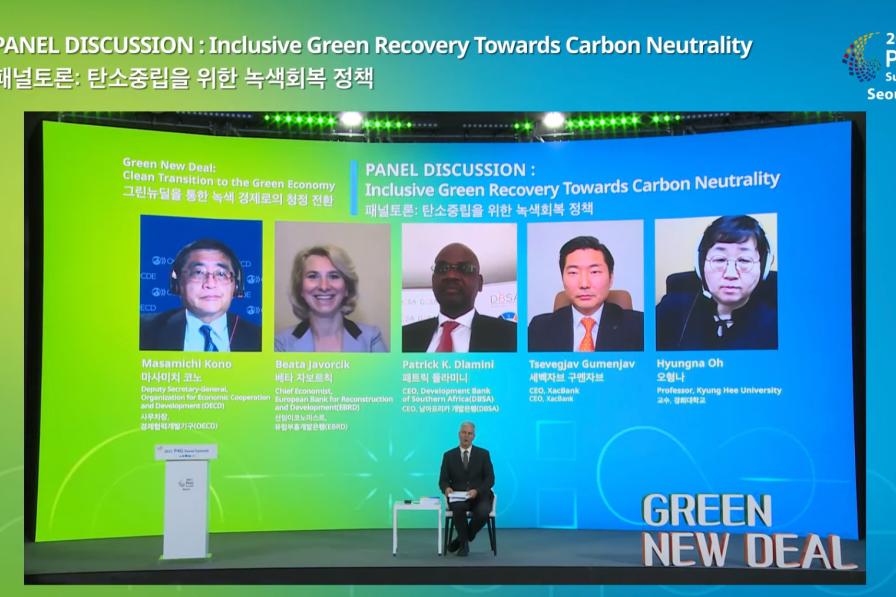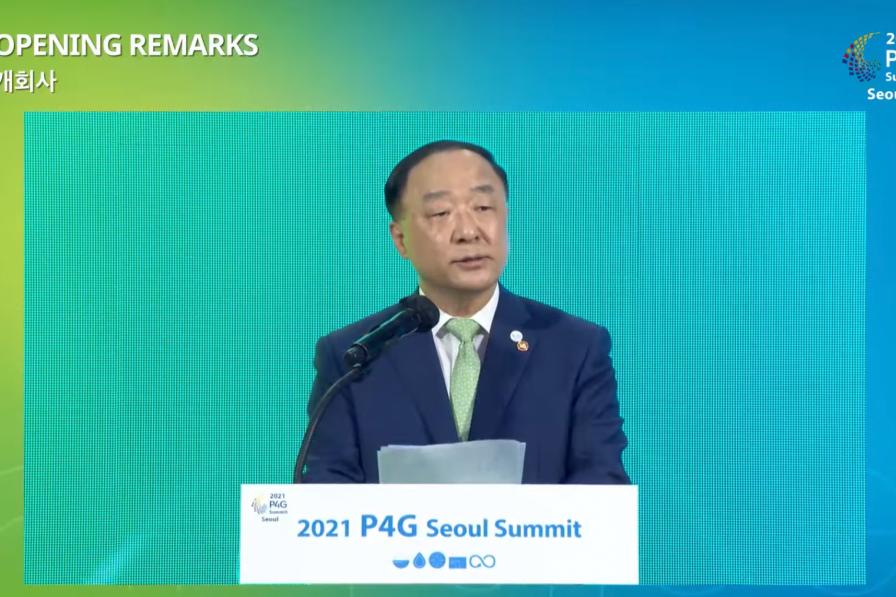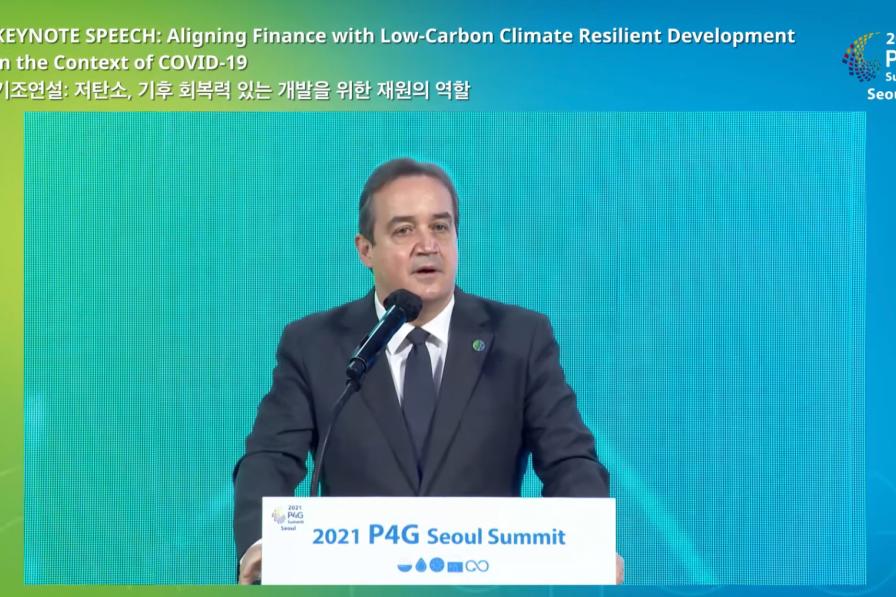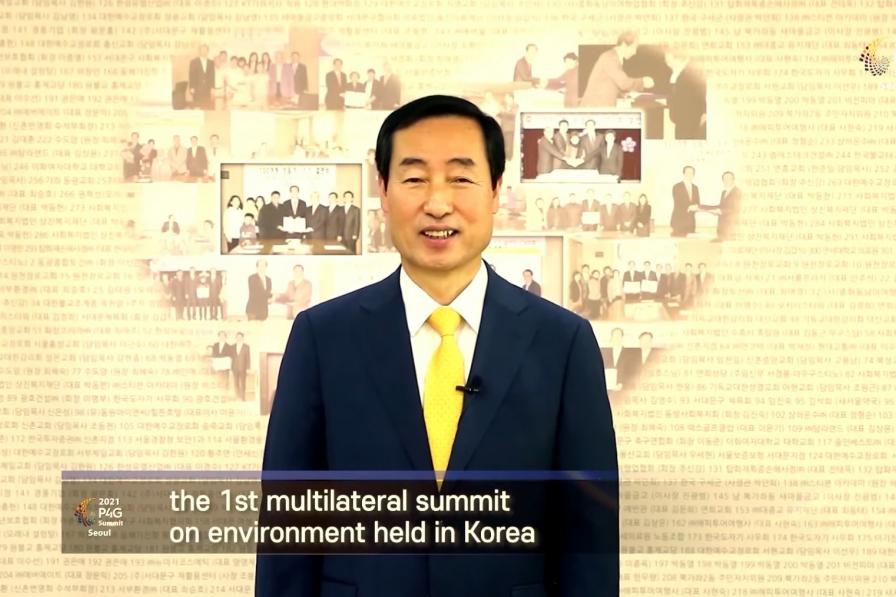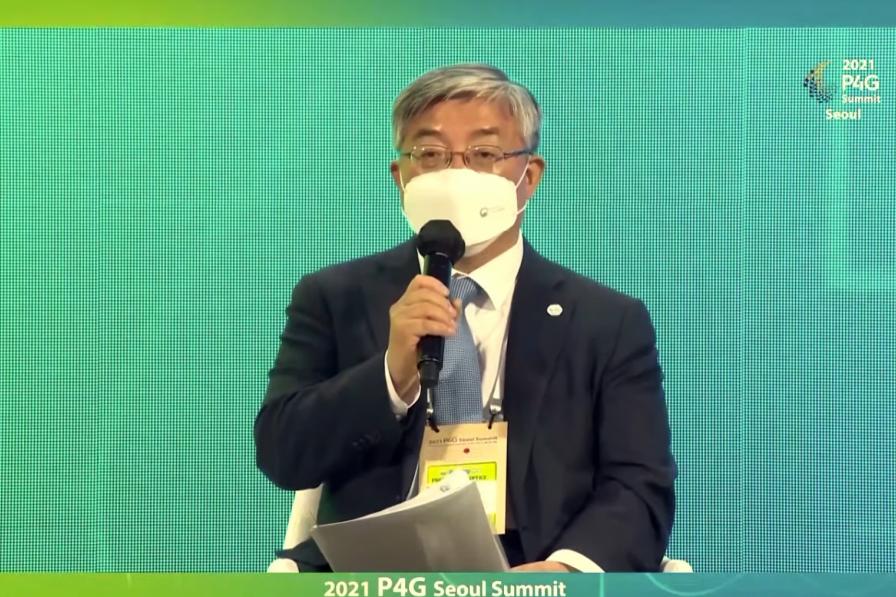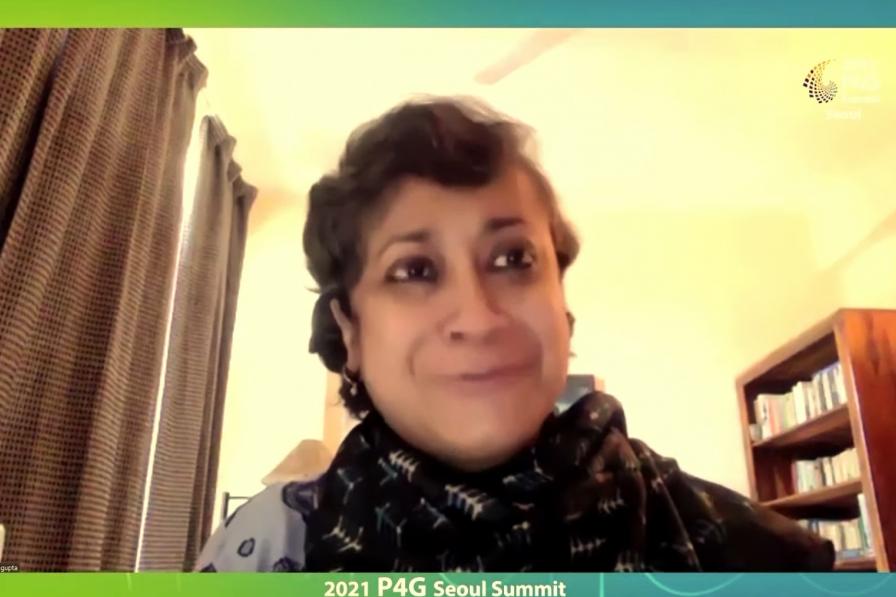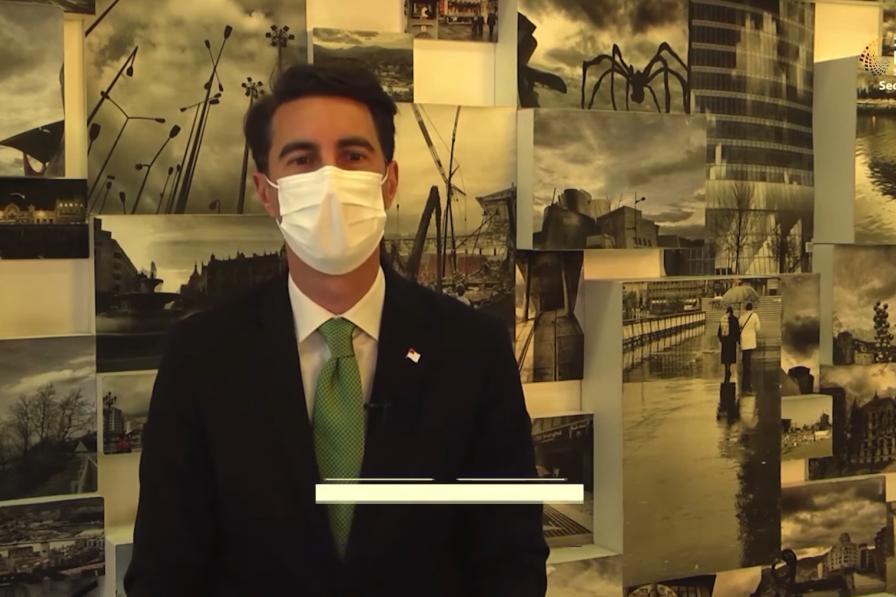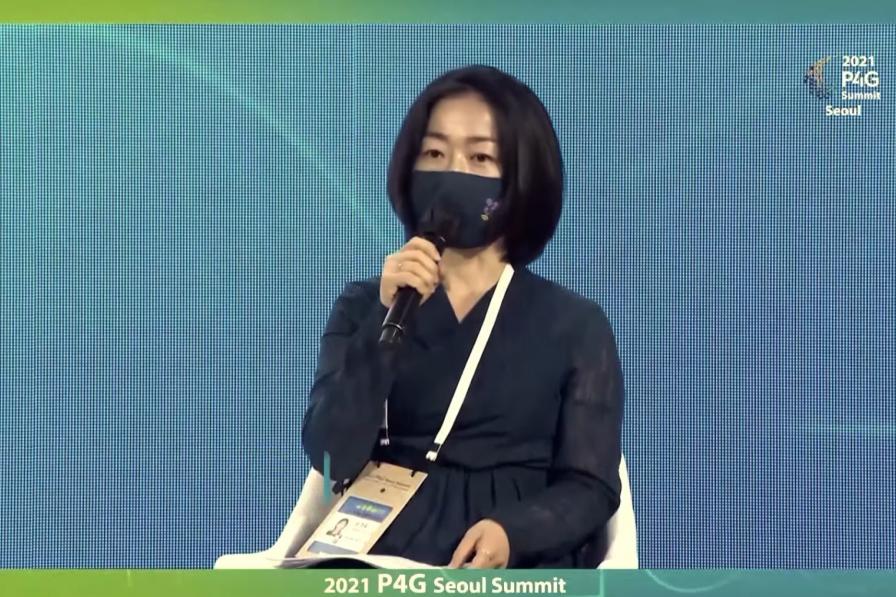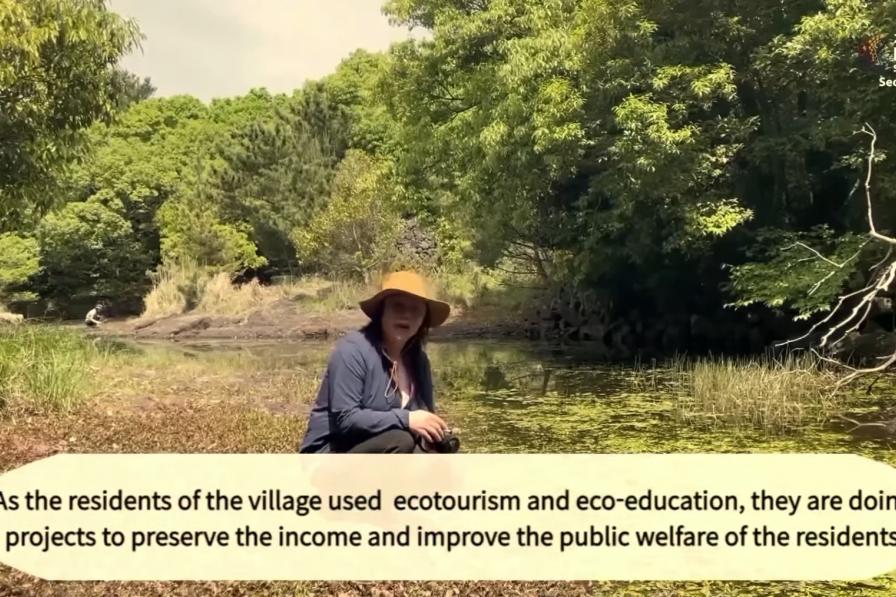Green Future Week discussions today focused on opportunities for countries to transition to a green economy through their own Green New Deal. Participants also discussed how civil society can be part of a just and green recovery from the current COVID-19 pandemic and climate crisis.
Special Remarks
High-level speakers from the Korean and UK Governments, the Green Climate Fund (GCF), development banks and multilateral organizations noted that the COVID-19 pandemic is a unique opportunity to jump-start such a transition, but also warned that the world is in danger of missing the current opportunity to use the large pandemic recovery packages to make structural changes.
Hong Nam-ki, Deputy Prime Minister and Minister of Economy and Finance, Republic of Korea, noted the need for a fair transition for workers in high-carbon manufacturing industries. He highlighted Korea’s Special Committee on Carbon Neutrality in ensuring this, based on clear communication and building of widespread social consensus.
Ban Ki-moon, President and Chair, Global Green Growth Institute (GGGI), while noting USD16 trillion in pandemic recovery packages worldwide, lamented lack of a "vaccine" for the climate crisis. He remained optimistic in view of: companies’ interest in green investment; the low-cost "democratization of technologies"; and leadership shown through the EU Green New Deal and recent US commitment.
Alok Sharma, President of the 26th session Conference of the Parties to the UN Framework Convention on Climate Change (COP 26), scheduled to convene in Glasgow, UK, in November 2021, warned that the opportunity to limit global warming to 1.5°C could slip away if countries do not commit to change. He said we must “make COP 26 the moment the world comes together to tackle the climate crisis and keeps 1.5°C alive.”
Green New Deal: Clean Transition to Green Economy
In this session, Yannick Glemarec, Executive Director, GCF, presented a keynote address based on the GCF working paper, ‘Tipping or Turning point: Scaling up Climate Finance in the Era of COVID-19.’ He highlighted policy, financial and institutional initiatives to scale up climate finance to enable developing countries to realize their climate ambition in the era of COVID-19.
Panelists from the Organisation for Economic Co-operation and Development (OECD), regional development banks and academia discussed how to boost green climate investment in developing countries. They noted practical measures such as support for mini-grids, which allow owners to sell excess electricity to their neighbors and waste recycling centers that generate jobs in rural as well as urban areas. They also discussed broader issues such as debt-for-nature and debt-for-climate swaps, currency exchange risks, and the need for a ‘green taxonomy’ to provide transparency in identifying green investment. Regional development cooperation for climate action also emerged as an important theme.
Just and Green Recovery from Grassroots’ Engagement
In this session, civil society representatives cautioned that public-private partnerships must be monitored and remain accountable to society. Several speakers noted that civil society plays an important role in monitoring the situation of vulnerable people, and that the P4G approach can promote sustainability and inclusiveness in these partnerships.
The session also raised the issue of companies’ aggressive control of technology through intellectual property rights, epitomized in the control of vaccines and medical equipment during the COVID-19 pandemic. Digital technologies were also discussed in terms of ownership and control of data, which may compromise citizens’ privacy rights.
Scientist and campaigner Vandana Shiva, International Forum on Globalization (IFG), stressed that ecology is "the science of the household" whereas economy is its management. She said, therefore, economic approaches must always be "a subsidiary" to ecology.
Participants also watched a video compiled by the Korean CSO Network featuring ten socioeconomic grassroots projects and activities of CSOs around the world.
To receive continuing coverage of this event delivered to your inbox, subscribe to the ENB Update newsletter.
